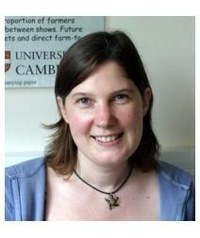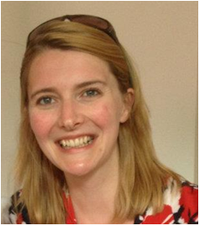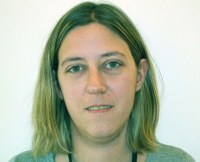Mathematical Models for Infectious Disease Dynamics (Virtual)
8–19 March 2021
Virtual Course
Learn the latest techniques for modelling infectious disease dynamics and control in humans, animals or plants
Summary
PLEASE NOTE: Due to the ongoing Covid-19 pandemic, this course will now be delivered in a virtual format.
Please note new dates: 8-19 March 2021
The 2-week programme will run weekdays only, i.e.
Week 1 = Monday 8- Friday 12 March
(Saturday 13-Sunday 14 March = no teaching)
Week 2 = Monday 15- Friday 19 March
What will I learn on the course?
The last two decades has seen a huge rise in the use of mathematical modelling across all areas of infectious disease research, from microbiology and pathogen evolution, through to large-scale epidemiology and public health, including most recently the Covid-19 pandemic. Professionals in these fields are now exposed to a wide range of models, often without receiving appropriate training.
This intensive two-week course has a strong emphasis on hands-on exercises using the programming software packages R and RStudio to build practical skills. The programme combines lectures, discussions and seminars with a series of in-depth practical sessions that help to facilitate understanding of the underlying theory by putting these approaches into practice.
The course starts with an introduction to computer programming from first principles, however participants who are not familiar with R are encouraged to learn the language basics (data analysis, vector manipulation and graphics) before attending.
The programme is aimed at any life scientist, public health, medical or veterinary professional with an interest in quantitative approaches to infectious disease dynamics and control in humans, animals or plants. The basic concepts of the course are applied largely to human infectious disease systems, with reference to more general applications in wildlife, livestock and plant systems.
Programme
For our virtual courses, we use video conferencing (Zoom) and instant messaging (Slack) applications along with other online and virtual machine (VM) teaching resources to deliver the different elements of the course as interactively as possible.
The course will run approximately 10:00-17:00 (GMT) daily. Some teaching materials may be pre-recorded but participants must be available to attend live, interactive sessions online between these times.
The programme will cover introductory and advanced concepts in mathematical modelling of infectious diseases, including:
- Mathematical review (calculus, probability, etc.)
- Population dynamics
- Deterministic and stochastic models
- Modelling structured populations: age-structured, spatial and network models
- Applied programming with R
- Statistical estimation of models
- Computer-based simulations
To adjust for the virtual format and to ensure we can cover the core material fully we have had to remove some of the advanced material on statistics and network modelling covered in previous years. However, we plan to provide a full program of (pre-recorded) invited guest seminars including a session from course instructors involved in modelling to support control of the Covid-19 pandemic.
Learning outcomes
After attending this course, participants will be able to:
- Design, implement and estimate simple epidemic models
- Better appreciate the value and limits of mathematical models in their own field
- More fully understand and apply knowledge from scientific articles that include mathematical models
- Explore the behaviour of simple models
- Engage more effectively in collaborations with mathematical modellers
Instructors and speakers
Course instructors

Andrew Conlan
University of Cambridge, Department of Veterinary Medicine, UK

Cerian Webb
University of Cambridge, Department of Plant Sciences, UK

TJ McKinley
University of Exeter, UK

Katy Gaythorpe
Department of Infectious Disease Epidemiology, Imperial College London, UK

Leon Danon
University of Exeter, UK

Caroline Trotter
University of Cambridge, UK

Nik Cunniffe
Department of Plant Sciences, University of Cambridge, UK

Andromachi Karachaliou
University of Cambridge, UK

Sophie Ip
University of Cambridge, UK
Matt Castle
University of Cambridge, UK
How to apply
Prerequisites
Applicants should be life scientists, public health, medical or veterinary professionals with an interest in quantitative approaches to infectious disease dynamics and control in humans, animals or plants.
The course is not aimed at scientists with extensive experience in modelling or with a strongly theoretical background. Applicants whose research project involves the use of models or interactions with modellers will be selected in priority.
Please note that due to the virtual format for this course, participants will require minimum computer specifications and internet access to fully benefit.
A guide to these requirements can be found here (PDF).
How to Apply
Please click the Apply button above to begin the online application process. Places are limited and will be awarded on merit. If you have any problems with the online application process, please contact us.
Please note: Applications must be supported by a recommendation from a scientific or clinical sponsor (e.g. supervisor, line manager or head of department). A request for a supporting statement will be sent to your nominated sponsor automatically during the application process. Applicants must ensure that their sponsor provides this supporting statement by the application deadline. Applications without a supporting statement cannot be considered.
Cost
| Cost | ||
| *Course fee | £400 | Due to the ongoing Covid-19 pandemic, this course will now be delivered in a virtual format. |
*The course fee is subsidised by Wellcome Genome Campus Advanced Courses and Scientific Conferences and applies to non-commercial applicants. Please contact us for the commercial fee.
Bursaries
Limited bursaries are available (up to 50% reduction on the course fee) and are awarded on merit. If you would like to apply for a bursary, please complete the bursary section of the online application form.
Where there are many bursary applications, the selection committee may issue smaller amounts.
Bursaries can be applied for as part of the course application form. Applicants will be notified of a bursary award along with their place on the course, usually within one month of the application deadline. The decision of the selection committee is final.
Please note that both the applicant and sponsor are required to provide a justification for the bursary as part of the application.
Additional funding opportunities
Visit our support page for additional financial support currently available.
Accommodation services phishing scam – please be vigilant. More information.
Testimonials
Feedback from the 2020 course:
“The course was balanced and the lecturers were world leading experts”
“A big thank you to all the staff – everyone was helpful, caring and had the utmost patience!”
“Thank you very much to all the organisers and lecturers for their time – a well spent two weeks that will no doubt be highly beneficial for my early research career.”
“Brilliant course, very well taught. Content is complicated and a lot to fit into the 2 weeks but the staff made huge effort to make it personal as well as teach to the course.”
“Thanks for the great course!”
“I will highly recommend you start a infectious disease online journal club to continuously help us develop the skills to appraising models”
“It was a great exposure to R and modelling”

